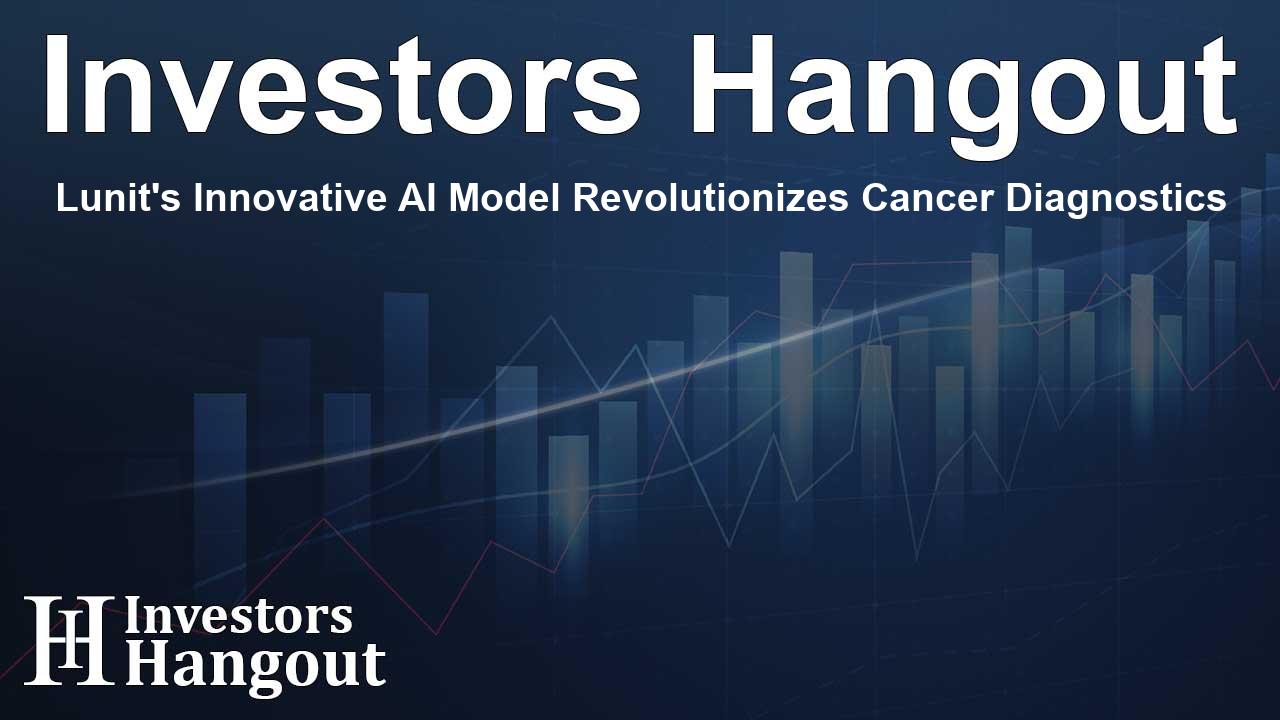Lunit's Innovative AI Model Revolutionizes Cancer Diagnostics

Revolutionizing Cancer Diagnostics with AI
In an exciting breakthrough within cancer diagnostics, Lunit has unveiled its Universal Immunohistochemistry (uIHC) AI model through extensive research published in npj Precision Oncology. This innovative model is designed to enhance accuracy in analyzing immunohistochemistry images, a key component in understanding cancer pathology and treatment options.
Understanding the Importance of Immunohistochemistry
Immunohistochemistry (IHC) is an invaluable technique in the field of oncology. It allows specialists to visualize and quantify protein expression in tissue samples, guiding treatment decisions for patients facing complex cancer diagnoses. However, the traditional methodologies in IHC are not without challenges. Current AI-assisted models have tended to struggle with two significant issues:
1. Data Dependency
Many AI-driven models rely heavily on access to vast collections of immunostain-specific images during their training phases. This requirement poses a challenge since acquiring these images, especially for novel immunostain-target pairs, is incredibly difficult. Limited data can hinder the effectiveness of such models.
2. Generalization Limitations
Another hurdle these AI models face is their inadequacy in generalizing across different datasets. When encountering new cancer types or immunostains, many existing models falter, limiting their effectiveness in practical, real-world applications. Hence, there is a substantial need for scalable solutions capable of providing accurate analysis across diverse cancer types.
Lunit's uIHC Model: A Breakthrough Solution
Lunit's comprehensive study aimed to examine various deep learning models' effectiveness. They compared eight different models: four trained on single cohorts and four trained on multi-cohort datasets. The analysis proved that the uIHC model leads in generalization and accuracy across both familiar and previously unseen datasets.
Impressive Results from the Study
- High Concordance on Known Datasets: The uIHC model registered a Cohen's kappa score of 0.792, outperforming the best single-cohort model.
- Exceptional Performance on Unseen Data: The model achieved a Cohen's kappa score of 0.610 on novel datasets, representing a significant improvement in generalization capabilities.
- Robust Tumor Proportion Score Accuracy: With an AUC of 0.921 across multi-stain test sets, uIHC demonstrated impressive reliability in quantifying IHC images.
These findings indicate that the uIHC model effectively handles a wide array of cancer types and immunostains, showcasing the potential to simplify and enhance cancer diagnostics significantly.
The Future of Digital Pathology
The uIHC model's remarkable ability to generalize across diverse IHC images marks a pivotal advancement in digital pathology. This capability not only reduces dependency on extensive, stain-specific datasets but also streamlines biomarker analysis critical for clinical diagnostics and drug development. Its importance is especially apparent in assessing new biomarkers related to innovative therapies, addressing a crucial bottleneck in precision oncology.
Brandon Suh, CEO of Lunit, articulated the significance of this model, stating, "Our Universal IHC AI model solves a practical bottleneck in development settings—handling unseen cancer types and stains without requiring additional data annotation. By demonstrating a multi-cohort training approach, we showcase how AI can adapt to real-world complexities, thus enhancing precision and scalability in cancer diagnostics."
About Lunit: A Leader in Medical AI
Lunit, founded in 2013, has become a pioneering force in the fight against cancer. Their mission focuses on leveraging AI technologies to enhance medical image analytics and improve diagnostic accuracy for cancer patients. The FDA-approved Lunit INSIGHT suite is currently utilized in over 4,500 hospitals worldwide.
The company has garnered recognition through clinical studies published in esteemed journals, including the Journal of Clinical Oncology and Lancet Digital Health. Established in Seoul and supported by a global network of offices, Lunit continues to drive forward innovative solutions aimed at optimizing cancer care.
Frequently Asked Questions
What is the Lunit SCOPE uIHC model?
The Lunit SCOPE uIHC model is an advanced AI tool designed to analyze immunohistochemistry images accurately across various cancer types.
What challenges does the uIHC model address in IHC analysis?
The uIHC model reduces dependency on large datasets and enhances generalization, allowing it to analyze unseen datasets effectively.
What are the key advantages of using Lunit's model?
Lunit's model provides high accuracy in scoring IHC images, a superior ability to generalize across various datasets, and efficient biomarker analysis for clinical applications.
How does Lunit contribute to cancer treatment?
Lunit focuses on utilizing AI technology to improve diagnostic accuracy, which aids in personalized treatment plans and better patient outcomes.
In what capacity is Lunit recognized in the medical community?
Lunit is recognized as a leading medical AI company, with studies published in top journals and its products utilized in thousands of hospitals globally.
About The Author
Contact Riley Hayes privately here. Or send an email with ATTN: Riley Hayes as the subject to contact@investorshangout.com.
About Investors Hangout
Investors Hangout is a leading online stock forum for financial discussion and learning, offering a wide range of free tools and resources. It draws in traders of all levels, who exchange market knowledge, investigate trading tactics, and keep an eye on industry developments in real time. Featuring financial articles, stock message boards, quotes, charts, company profiles, and live news updates. Through cooperative learning and a wealth of informational resources, it helps users from novices creating their first portfolios to experts honing their techniques. Join Investors Hangout today: https://investorshangout.com/
The content of this article is based on factual, publicly available information and does not represent legal, financial, or investment advice. Investors Hangout does not offer financial advice, and the author is not a licensed financial advisor. Consult a qualified advisor before making any financial or investment decisions based on this article. This article should not be considered advice to purchase, sell, or hold any securities or other investments. If any of the material provided here is inaccurate, please contact us for corrections.
